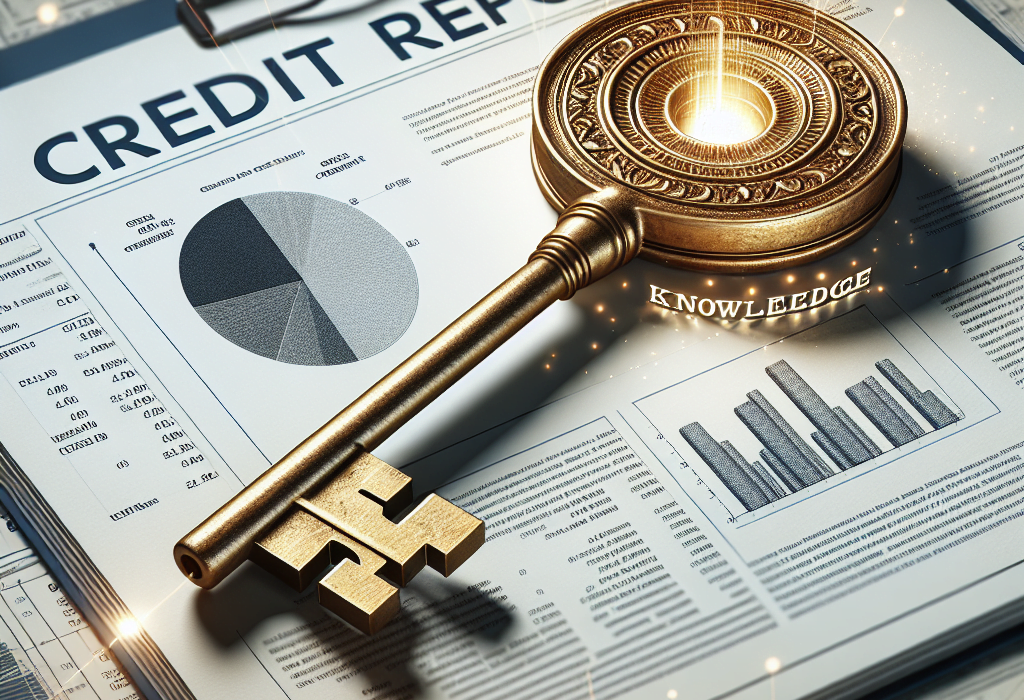Introduction
Every aspect of our financial lives is impacted by an ever-present but seldom-understood document: the credit report. Although the importance of maintaining an excellent credit rating is well understood, the mechanics of credit report assessment remain a mystery to many. This article seeks to unlock the secrets of credit report analysis by examining its structure, role, and influence on an individual’s financial life.
Understanding Credit Report
A credit report is a record of a person’s borrowing activities. It details past loans, repayment history, current debt, and other financial information. Lenders reference these reports during the decision-making process for giving loans or determining the interest rates for various forms of credit. Credit reports are maintained by credit bureaus like Experian, Equifax, and TransUnion. Understanding how your credit report is analyzed can empower you to take necessary measures to improve your credit score and financial health.
Components of a Credit Report
Personal Information
This section contains the identifying information of an individual, such as name, address, Social Security number, and possibly employment details. Though this data isn’t used in determining credit scores, it’s essential for verifying your identity.
Credit History
This constitutes the core of your credit report. It includes the history of loans and credit cards, including the financial institution involved, the total loan or credit card limit, the quantum of outstanding debt, repayment behavior, and the age of these accounts.
Public Records
Public records relevant to creditworthiness, such as bankruptcies, tax liens, and civil judgments, are included in a credit report and could negatively affect the report’s overall judgment.
Inquiries
These are records of everyone who’s checked your credit report over the last 24 months. These ‘hard inquiries’ can slightly damage your credit score temporarily.
How is Credit Report Data Analyzed?
Understanding how a credit report is read and analyzed can help individuals take control of their financial future. Each lending institution may use different factors and weights, but the FICO scoring model provides the most common method:
- Payment History (35%): Regular repayments on outstanding credit significantly boosts your credit score. Late payments, defaults, and bankruptcies can severely damage it.
- Amounts Owed (30%): Maxing out credit cards or maintaining high balances indicates higher risk, which can negatively affect the score.
- Length of Credit History (15%): Lenders favor borrowers with a long, stable credit history as it shows a consistent behavior pattern.
- Credit Mix (10%): A diverse mix of credit (mortgages, credit cards, and loans) indicates that a borrower can handle different credit types.
- New Credit (10%): Opening several new credit accounts in a short period indicates greater risk and can decrease the score.
Importance of Credit Report Analysis to Consumers
Accurate credit report analysis helps consumers in various ways, including:
- Securing low-interest loans: individuals with high credit scores usually qualify for loans at lower interest rates.
- Attracting better credit card offers: Cards with cashback offers, rewards, and low APRs often require good to excellent credit scores.
- Obtaining clearance for apartments, utilities, and jobs: Landlords, utility, and even some employers use credit reports to evaluate applicants.
Conclusion
A credit report provides a snapshot of individuals’ financial health and creditworthiness. Understanding how it’s analyzed can unlock the mystery surrounding credit scores and open avenues for making better financial decisions. Regularly reviewing your credit report and understanding its analysis can alert you to errors or areas of improvement, thereby securing your financial future.
FAQs
Q: How can I check my credit report?
A: You can obtain a free report from each of the three major credit bureaus (Experian, Equifax, and TransUnion) once a year through AnnualCreditReport.com.
Q: What’s the difference between a credit score and a credit report?
A: The credit report is a detailed account of your credit history, while the credit score is a three-digit number calculated from the data in your credit report.
Q: Do employers look at my credit score?
A: Most employers don’t look at your credit score. They may, however, request your consent to view your credit report.
Q: How much does my income affect my credit score?
A: Your income doesn’t directly impact your credit score; however, it can influence your ability to repay debts, which is a critical aspect of a credit report.
Q: What steps can I take to improve my credit score?
A: Simple steps include paying your bills on time, reducing outstanding debt, avoiding new debt, and keeping credit card balances low.













